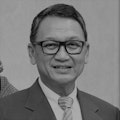Enabling Net Zero: International Cooperation to Address Barriers to Low Emissions Technology Uptake
Background information
The IEA’s Net Zero by 2050 roadmap highlighted the need for rapid deployment of available technologies (for example, solar and wind) as well as technologies that are yet to reach the market. These emerging technologies – including hydrogen applications, advanced batteries and direct air capture - deliver almost half of the CO2 emissions reductions in a net-zero pathway by 2050.
Momentum is growing behind new and emerging clean energy technologies, underpinned by strengthened national climate ambitions. There is an increasing and urgent need for improved access to capital, design of fit-for-purpose regulatory frameworks and enhanced international cooperation to overcome the barriers to large-scale deployment and to accelerate the pathway to commercialisation.
This IEA Ministerial side event will discuss barriers to the global scale-up of clean energy technologies. It will be a forum to identify possible policy, regulatory and legislative frameworks, discuss the value and indicators required for standards setting for different technologies, and agree on international mechanisms for enhancing access to financing for projects that will enable large-scale uptake of these technologies. The event will establish guidance for future IEA work on clean energy technologies.
Welcome and opening remarks
Panel discussion: Enhancing international cooperation to address barriers to clean energy technology deployment
Moderator
Ambassador Brendan Pearson, Permanent Representative to the OECD, Australia
Panellists
- Ben van Beurden, Chief Executive Officer, Shell
- Claudio Facchin, Chief Executive Officer, Hitachi Energy
- Kevin Gallagher, Chief Executive Officer, Santos
- Pol Le Roux, Vice President Downstream, Lynas Rare Earths
- Mary Burce Warlick, Deputy Executive Director, IEA
Closing remarks
Angus Taylor, Minister for Industry, Energy and Emissions Reduction, Australia



